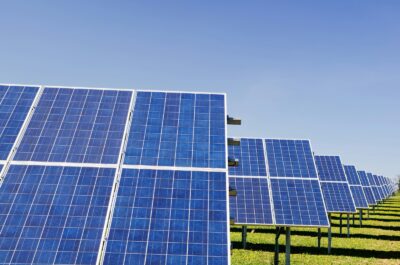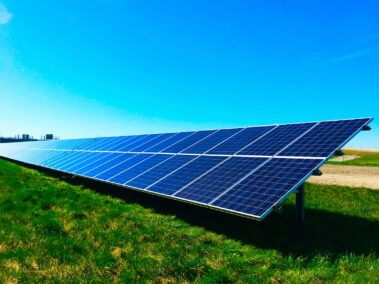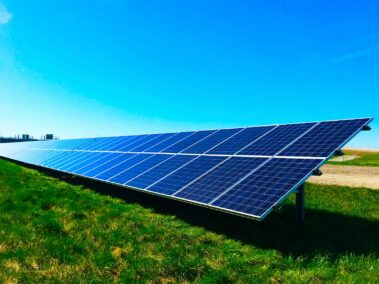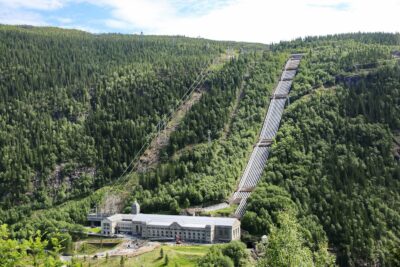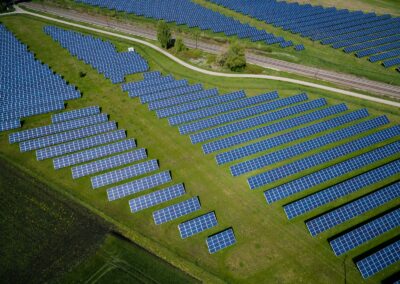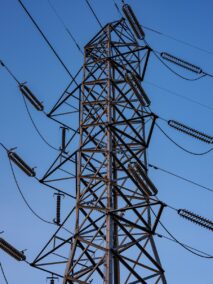The Role of Smart Grids in Modern Energy Systems
Introduction to Smart Grids and Renewable Energy Distribution
In today’s rapidly evolving energy landscape, the development of smart grids and renewable energy distribution systems is crucial for enhancing the efficiency and sustainability of energy management. As countries like Saudi Arabia and the UAE continue to invest in ambitious renewable energy projects, the implementation of smart grids represents a transformative approach to managing and distributing energy resources. These advanced systems leverage cutting-edge technologies to optimize the integration and distribution of renewable energy, thereby supporting national goals for sustainability and energy security.
Saudi Arabia’s Vision 2030 underscores the importance of modernizing its energy infrastructure to support a diversified energy mix, which includes a significant portion of renewable energy. The development of smart grids in the kingdom is a key component of this strategy, enabling more efficient management of energy resources and reducing reliance on fossil fuels. By integrating smart grid technologies, Saudi Arabia aims to enhance the reliability and resilience of its energy system, facilitating the seamless integration of solar, wind, and other renewable energy sources.
Similarly, the UAE has been at the forefront of adopting innovative energy solutions to support its sustainability objectives. In cities like Dubai, the implementation of smart grids plays a pivotal role in managing the distribution of renewable energy generated from solar and other sources. These smart grid systems are designed to optimize energy usage, reduce wastage, and ensure a stable supply of clean energy to meet the growing demand. Through strategic investments and partnerships, the UAE is positioning itself as a leader in renewable energy and smart grid technology.
Advantages of Smart Grids in Renewable Energy Integration
The deployment of smart grids offers numerous advantages for the integration and distribution of renewable energy, making them an essential component of modern energy systems. One of the primary benefits of smart grids is their ability to enhance the efficiency of energy distribution by leveraging advanced data analytics and real-time monitoring. This allows for better management of energy flows, reducing losses and ensuring that renewable energy is utilized effectively.
Moreover, smart grids support the integration of diverse renewable energy sources by providing a flexible and adaptive infrastructure. Traditional energy grids are often limited in their ability to handle the variability and intermittency of renewable energy. In contrast, smart grids use sophisticated algorithms and automated controls to balance supply and demand, accommodating fluctuations in energy production from solar, wind, and other renewable sources. This flexibility is crucial for maximizing the use of renewable energy and reducing dependency on conventional power plants.
Another significant advantage of smart grids is their potential to enhance the resilience and reliability of the energy system. By incorporating advanced sensors, communication networks, and distributed energy resources, smart grids can quickly detect and respond to disruptions, minimizing the impact of outages and ensuring a continuous supply of energy. This is particularly important in regions like the Middle East, where extreme weather conditions and other challenges can affect energy infrastructure. Smart grids provide a robust framework for maintaining energy security and supporting the stable operation of renewable energy systems.
Executive Coaching and Change Management in Energy Transition
The successful implementation of smart grids and renewable energy distribution requires effective leadership and change management strategies. For business executives and energy industry leaders, navigating this complex transition involves developing the necessary skills and knowledge to drive innovation and organizational change. Executive coaching services can play a vital role in supporting leaders as they adapt to new technologies and manage the challenges associated with the energy transition.
In the context of Saudi Arabia and the UAE, executive coaching can help leaders align their strategic vision with national sustainability goals and the latest advancements in smart grid technology. This involves fostering a culture of innovation, building cross-functional teams, and engaging stakeholders to ensure a smooth and successful transition. Effective communication is also crucial, as leaders must articulate the benefits of smart grids and renewable energy to their teams and external partners, addressing any concerns and building consensus.
Change management strategies are essential for overcoming resistance to new technologies and processes. By leveraging executive coaching, organizations can equip their leaders with the tools and techniques needed to manage change effectively, mitigate risks, and capitalize on opportunities for growth and innovation. This holistic approach ensures that businesses and governments can harness the full potential of smart grids and renewable energy distribution to achieve their sustainability objectives and create a more resilient energy future.
Conclusion: The Future of Smart Grids and Renewable Energy
In conclusion, the development of smart grids and renewable energy distribution systems is integral to enhancing the efficiency and sustainability of modern energy systems. Through strategic investments and innovative solutions, countries like Saudi Arabia and the UAE are leading the way in adopting smart grid technologies to support their renewable energy ambitions. By leveraging the benefits of smart grids, these nations can optimize energy management, integrate diverse renewable sources, and ensure a reliable and resilient energy supply.
For business executives and energy industry leaders, navigating this transition requires effective leadership, change management, and a commitment to innovation. Executive coaching services provide valuable support in developing the necessary skills and strategies to drive organizational change and achieve sustainability goals. As the energy landscape continues to evolve, the successful implementation of smart grids will play a pivotal role in creating a more sustainable and resilient future for all.
#SmartGrids #RenewableEnergy #EnergyEfficiency #Sustainability #SaudiArabia #UAE #Riyadh #Dubai #EnergyTransition #ExecutiveCoaching #ChangeManagement



